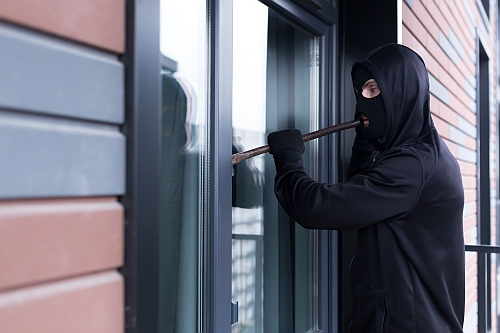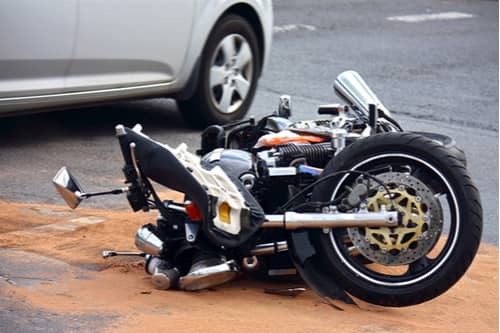When you rent an apartment, you expect to feel safe and secure. Unfortunately, not all landlords take their responsibility for tenant safety seriously. Negligent security is a real problem that can lead to serious injuries or even death.
If you’ve been the victim of a crime due to a lack of proper security at an apartment building, you may have a premises liability case against the owner or management.
We’ll explore Georgia law surrounding negligent security and the steps to prove liability in a case against an apartment complex. Plus, we’ll show you how a Douglasville premises liability lawyer can help fight for your rights as a tenant.
Georgia Law Requires Landlords to Keep Their Premises Safe for Tenants
Under Georgia premises liability law, landlords are legally responsible for maintaining safe premises for their tenants. This means they must take reasonable measures to protect their residents from foreseeable dangers and criminal activity.
Landlords have a duty to keep common areas like hallways, parking lots, and stairwells well-lit and free from hazards that could cause accidents or injuries. They also need to install secure locks on doors and windows in each unit to prevent unauthorized entry.
If an apartment complex fails to provide adequate security measures, such as failing to fix broken locks or not installing proper lighting in the parking lot, the landlord may be liable if a tenant is harmed by criminal activity on the property.
It’s important for tenants who have been injured due to negligent security measures at their apartment building to consult with an experienced premises liability lawyer immediately. A skilled attorney can help determine if you have grounds for legal action against your landlord.
Common Examples of Negligent Security
Negligent security is a serious issue that can result in harm or injury to tenants or guests in an apartment complex. There are several common examples of negligent security that landlords must be aware of and take measures to prevent.
One example is inadequate lighting, which can create dark areas where criminals may hide and attack unsuspecting victims. Landlords should ensure that all outdoor areas are well-lit, including parking lots, walkways, and stairwells.
Another example is broken locks or doors that do not close properly. These issues compromise the safety of tenants by allowing intruders into the property. Landlords should regularly inspect locks and doors to ensure they are functioning correctly.
Lack of surveillance equipment is also a common form of negligent security. Without cameras installed throughout the property, it becomes challenging for law enforcement officials to identify perpetrators in the event of an incident.
Steps to Prove Liability in a Negligent Security Case
Negligent security is a serious issue that can put tenants’ safety at risk. If you believe that an apartment complex’s lack of adequate security measures has led to your injury or loss, you may have grounds for a lawsuit. However, proving liability in these cases can be challenging.
To establish liability, you must show that the landlord had a duty to keep the apartment building safe and secure, breached this duty by failing to provide adequate security measures, and this breach caused your injury or loss.
Firstly, it’s important to gather evidence such as surveillance footage, eyewitness accounts, police reports and medical records. This will help support your claim and demonstrate the extent of the damages suffered.
Secondly, it’s crucial to consult with an experienced negligent security attorney who can assess your case and determine whether there is sufficient evidence to pursue legal action against the landlord or property owner.
Thirdly, if there was any prior criminal activity on the premises before your incident occurred – such as burglaries or assaults – this could strengthen your case by suggesting that the landlord was aware of potential risks but did not take appropriate measures to prevent them.
Identifying any violations of state law regarding building codes or safety regulations could also help prove negligence on behalf of the apartment complex.
Do Not Sign a Settlement Agreement With the Landlord’s Insurer
If you have been a victim of a crime due to negligent security in an apartment complex, the landlord’s insurance company may offer you a settlement agreement. It is important not to sign this agreement without first consulting with an experienced attorney.
The insurer’s primary goal is to minimize their liability and protect the landlord from any further legal action. The amount offered may seem like a fair deal, but it typically falls short of what victims are entitled to under Georgia law.
By signing the settlement agreement, you may be waiving your right to pursue further legal action against the landlord or their insurance company. This means that if medical expenses continue to accumulate or if there are long-term consequences from the crime, you will not be able to seek compensation for these damages.
An experienced attorney can review your case and negotiate on your behalf for a more appropriate settlement amount or explore other options for seeking compensation. By working with an attorney, you can ensure that your rights are protected and that you receive full and fair compensation for your injuries and losses.
How Can a Lawyer Help You File a Claim Against an Apartment Complex?
If you have suffered an injury due to negligent security in your apartment, it is crucial to hire a competent lawyer to represent you in court. A skilled premises liability attorney can help you navigate through the complex legal process and ensure that you receive fair compensation for your damages.
Firstly, a lawyer will conduct thorough investigations into the circumstances surrounding your case. They will gather evidence such as police reports, witness statements, and surveillance footage to establish liability on the part of the apartment building owner or management.
Secondly, they will assess the extent of your injuries and calculate an accurate estimate of damages owed to you. This includes medical expenses, lost wages, pain and suffering, and any other relevant costs related to your injury.
Thirdly, a lawyer can negotiate with insurance companies on your behalf. Insurance adjusters often try to settle cases quickly for less than what victims are entitled to; however, having an experienced lawyer by your side ensures that this does not happen.
If necessary, a premises liability attorney can take your case all the way through trial. They know how Georgia laws apply specifically in Douglasville against apartment complex owners who fail their obligation towards tenants’ safety under the law.
Bring Your Case to a Dedicated Douglasville Premises Liability Lawyer!
If you or a loved one have been the victim of a crime due to negligent security measures in an apartment building, don’t wait any longer. The law is on your side, and you could be entitled to compensation for your damages. However, proving liability can be challenging without proper legal representation.
That’s where a dedicated Douglasville premises liability lawyer comes in. At Hartley, Rowe, and Fowler, we understand how devastating it can be to suffer injuries or losses due to someone else’s negligence. That’s why we are committed to helping victims get justice and fair compensation for their damages.
Don’t let negligent landlords get away with putting tenants’ safety at risk. Contact us today to schedule a free consultation and learn more about how we can help you bring your case against an apartment complex owner!







